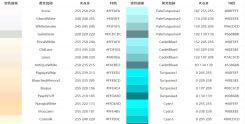- 欢迎使用千万蜘蛛池,网站外链优化,蜘蛛池引蜘蛛快速提高网站收录,收藏快捷键 CTRL + D
如何批量压缩HTML图片?简便易行的方法快速解决



如何批量压缩HTML中的图片?
对于拥有大量图片的网页,为了提高网站的加载速度和性能,我们需要压缩这些图片。但是一个个手动压缩显然不太现实,使用Python批量压缩HTML中的图片就是一个不错的解决方案。
步骤一:安装Python和相关库
首先需要确保计算机上已经安装了Python且配置环境变量,然后使用pip安装以下两个库:
Pillow:用于处理图像的库BeautifulSoup:用于解析HTML的库
pip install Pillow pip install beautifulsoup4
步骤二:编写Python脚本
创建一个名为compress_images.py的文件,并在其中编写以下代码:
import os
from PIL import Image
from bs4 import BeautifulSoup
def compress_image(input_file, output_file, quality=85):
image = Image.open(input_file)
image.save(output_file, optimize=True, quality=quality)
def compress_images_in_html(input_html, output_html):
with open(input_html, 'r', encoding='utf8') as file:
soup = BeautifulSoup(file, 'html.parser')
for img in soup.find_all('img'):
img_src = img['src']
img_name, img_ext = os.path.splitext(img_src)
compressed_img_src = f"{img_name}_compressed{img_ext}"
compress_image(img_src, compressed_img_src)
img['src'] = compressed_img_src
with open(output_html, 'w', encoding='utf8') as file:
file.write(str(soup))
if __name__ == "__main__":
input_html = "input.html"
output_html = "output.html"
compress_images_in_html(input_html, output_html)
步骤三:运行脚本
将你要压缩的图片放入与compress_images.py相同的文件夹中,在命令行中运行以下命令:
python compress_images.py
这将生成一个名为output.html的新文件,其中包含压缩后的图片。你可以在HTML文件中查看图片是否被正确替换为压缩后的版本。
有哪些需要注意的问题?
1. 压缩图片的质量
默认情况下,compress_image函数会按85%的质量对图片进行压缩。你可以传入不同的quality参数来调整压缩的质量。
2. 命名冲突
如果你压缩的图片和压缩后的图片文件名相同,会出现命名冲突的问题。为了避免这种情况,我们在压缩后的文件名中添加了_compressed子字符串。
3. BeautifulSoup的使用
我们使用BeautifulSoup库解析HTML文件,通过soup.find_all('img')获取HTML中所有的标签。然后,我们通过
compress_image函数对标签中的图片进行压缩,并将压缩后的图片替换标签中的
src属性。
结论
批量压缩HTML中的图片可以通过Python和相关库实现。这项技术可以大大提高网站的加载速度和性能,让用户更好地体验您的网站。
有没有使用过批量压缩HTML中的图片呢?在使用过程中你还遇到过什么问题?欢迎在评论区分享你的经验和看法。
感谢观看,希望本文能帮助到你。
| 广告位招租-内容页尾部广告(PC) |
相关文章推荐
- 无相关信息
蜘蛛技巧最新文章
- 「PHP网站模块修改:让你的网站更符合用户需求 | 操作实例详解」
- 1,如何做好IIS服务器安全设置?10个实用技巧帮你实战 2,你的IIS服务器是否安全?掌握这些实战技巧确保数据安全 3,为什么你需要关注IIS服务器的安全设置?5个实践技巧保障网站安全 4,提高II
- 如何在Linux中查看端口占用情况,以及实用的命令和技巧
- 「API 客户端游标」 - 如何在大规模数据传输中优化效率? 「游标查询深入解析」 - 内部实现与优化技巧
- “如何架设云服务器? 一步步教你快速搭建云服务器架构”
- 1. 如何提升MySQL性能?7种优化方法让数据库运行更高效 2. 为什么你的MySQL数据库速度慢?5种实用技巧帮你解决优化难题
- Linux Mint支持UEFI启动吗?完全指南和解决方案
- “避免SQL注入!mysql中tonumber函数使用要注意什么”
- 1. 如何提升MySQL性能?7种优化方法让数据库运行更高效 2. 为什么你的MySQL数据库速度慢?5种实用技巧帮你解决优化难题
- “为什么苹果8p微信不会爆炸?了解安全科技背后的原理”












)


)



)
